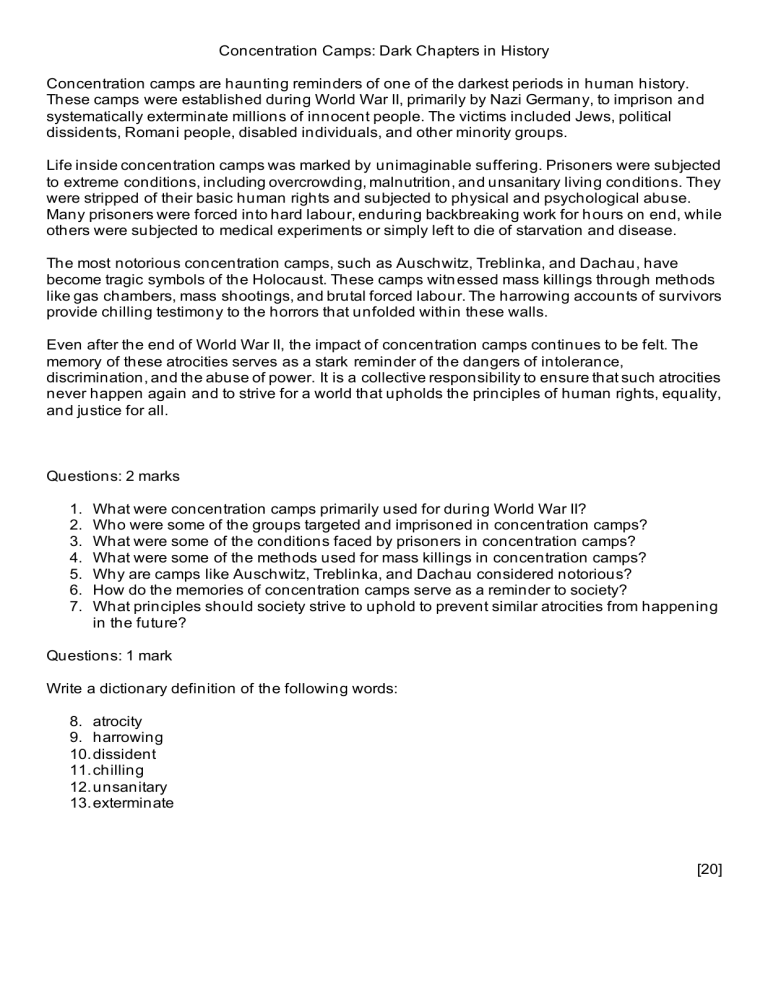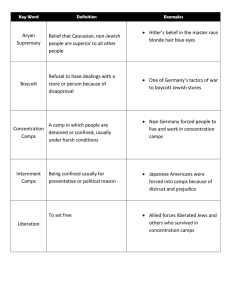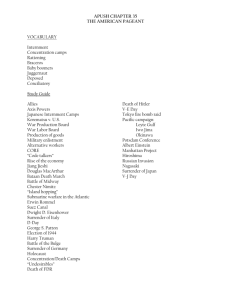
Concentration Camps: Dark Chapters in History Concentration camps are haunting reminders of one of the darkest periods in human history. These camps were established during World War II, primarily by Nazi Germany, to imprison and systematically exterminate millions of innocent people. The victims included Jews, political dissidents, Romani people, disabled individuals, and other minority groups. Life inside concentration camps was marked by unimaginable suffering. Prisoners were subjected to extreme conditions, including overcrowding, malnutrition, and unsanitary living conditions. They were stripped of their basic human rights and subjected to physical and psychological abuse. Many prisoners were forced into hard labour, enduring backbreaking work for h ours on end, while others were subjected to medical experiments or simply left to die of starvation and disease. The most notorious concentration camps, such as Auschwitz, Treblinka, and Dachau, have become tragic symbols of the Holocaust. These camps witn essed mass killings through methods like gas chambers, mass shootings, and brutal forced labour. The harrowing accounts of survivors provide chilling testimony to the horrors that unfolded within these walls. Even after the end of World War II, the impact of concentration camps continues to be felt. The memory of these atrocities serves as a stark reminder of the dangers of intolerance, discrimination, and the abuse of power. It is a collective responsibility to ensure that such atrocities never happen again and to strive for a world that upholds the principles of human rights, equality, and justice for all. Questions: 2 marks 1. 2. 3. 4. 5. 6. 7. What were concentration camps primarily used for during World War II? Who were some of the groups targeted and imprisoned in concentration camps? What were some of the conditions faced by prisoners in concentration camps? What were some of the methods used for mass killings in concentration camps? Why are camps like Auschwitz, Treblinka, and Dachau considered notorious? How do the memories of concentration camps serve as a reminder to society? What principles should society strive to uphold to prevent similar atrocities from happening in the future? Questions: 1 mark Write a dictionary definition of the following words: 8. atrocity 9. harrowing 10. dissident 11. chilling 12. unsanitary 13. exterminate [20]



